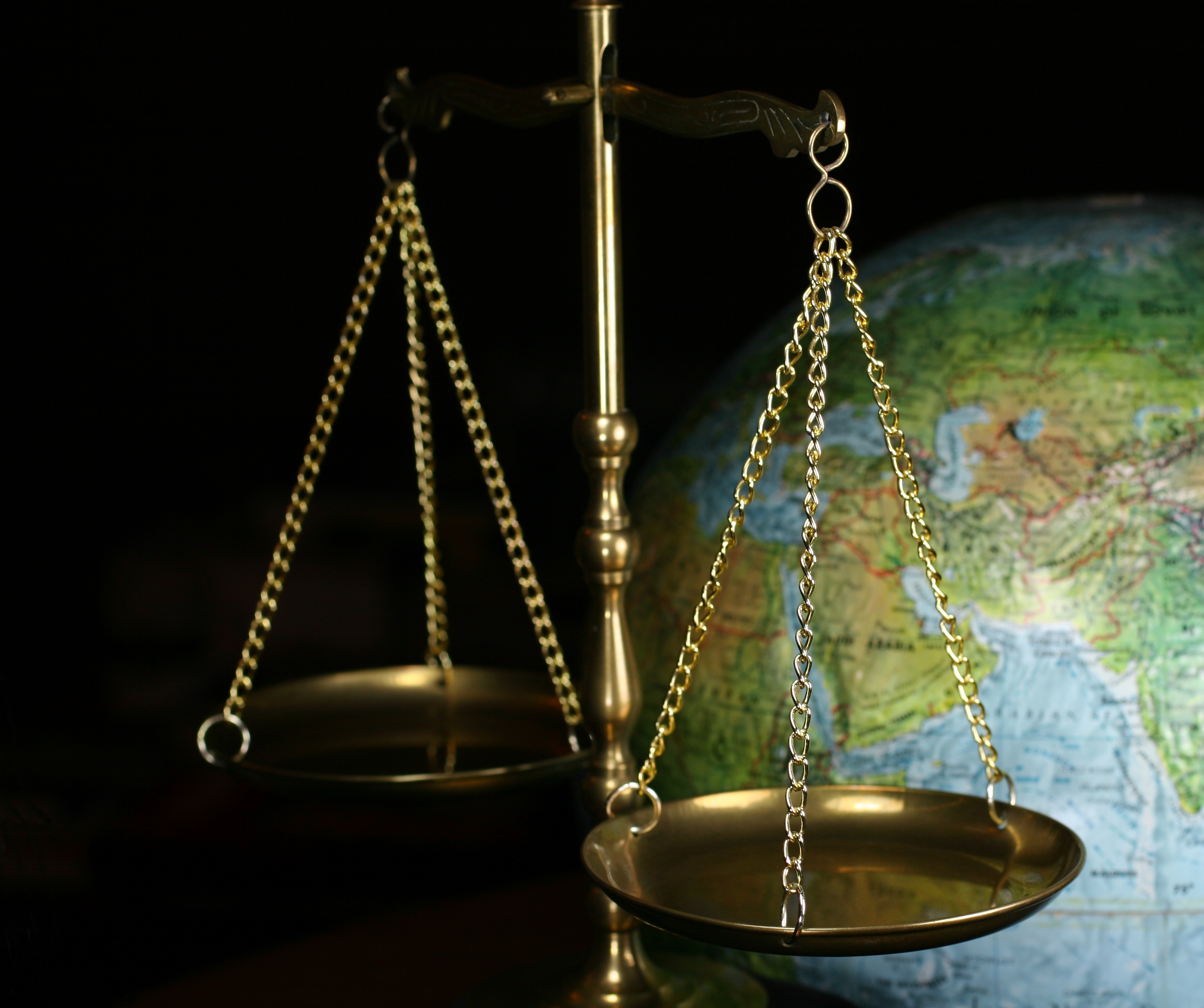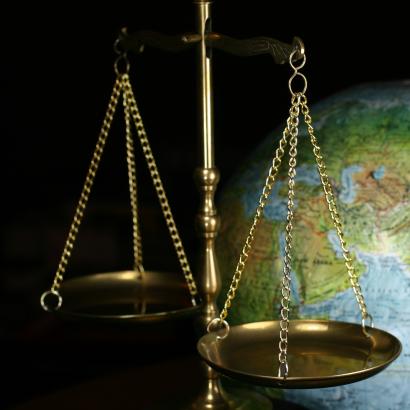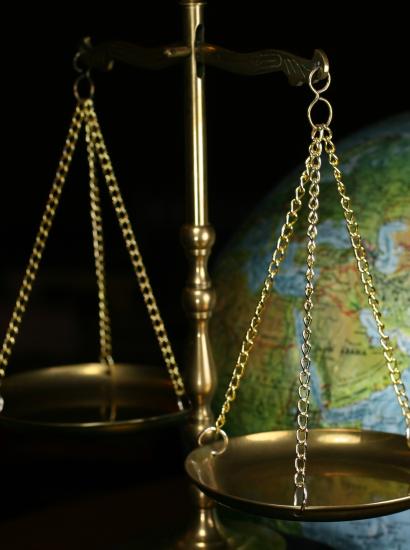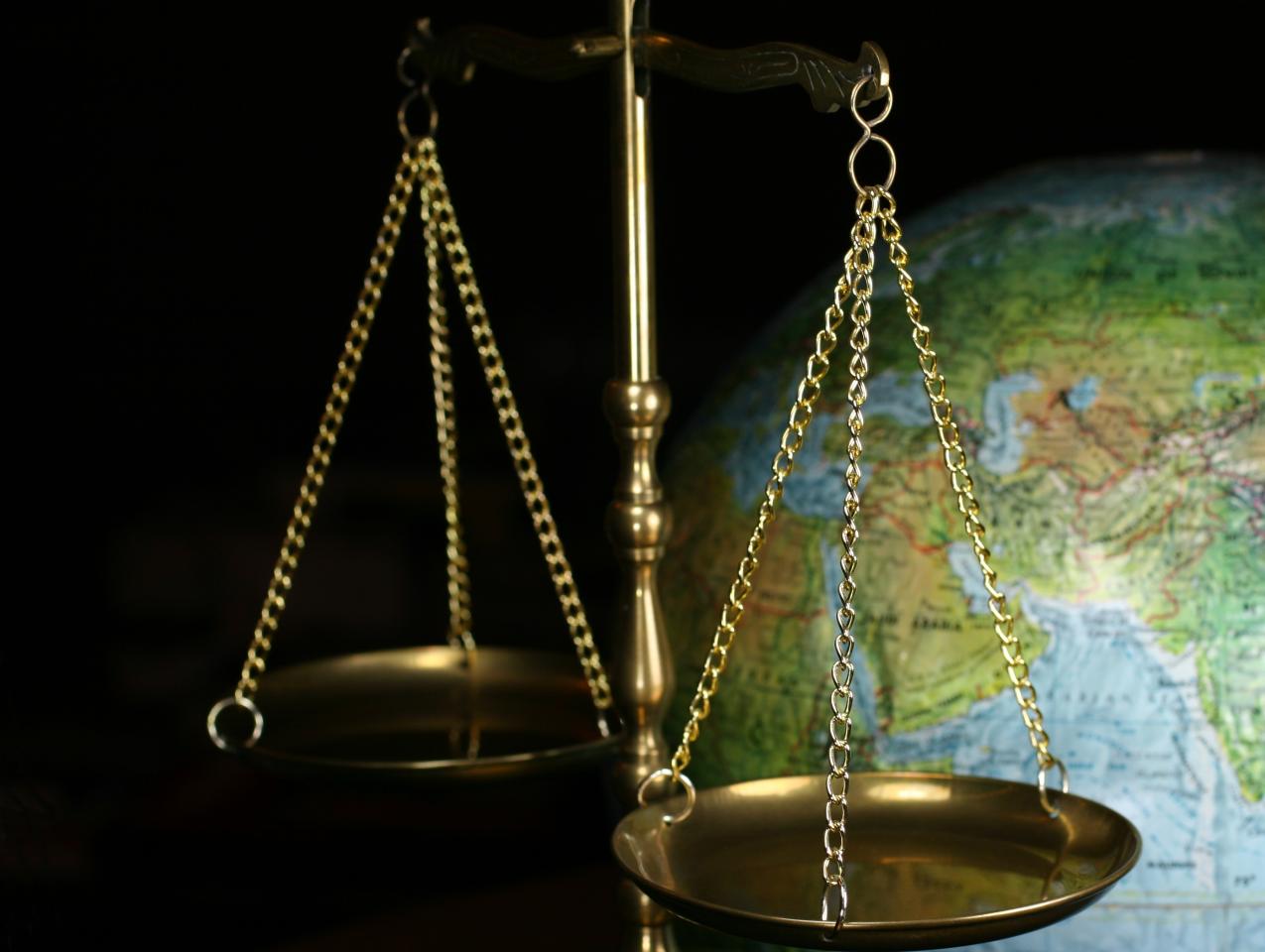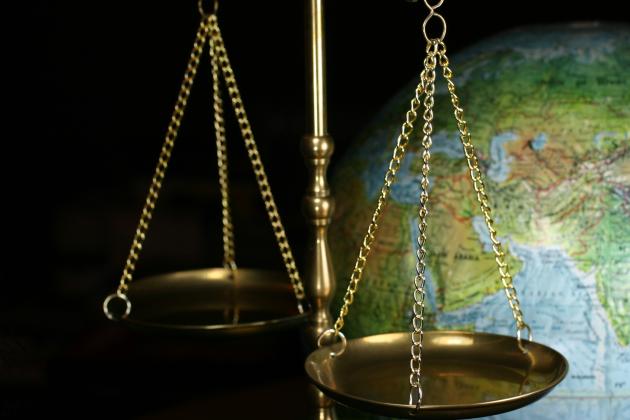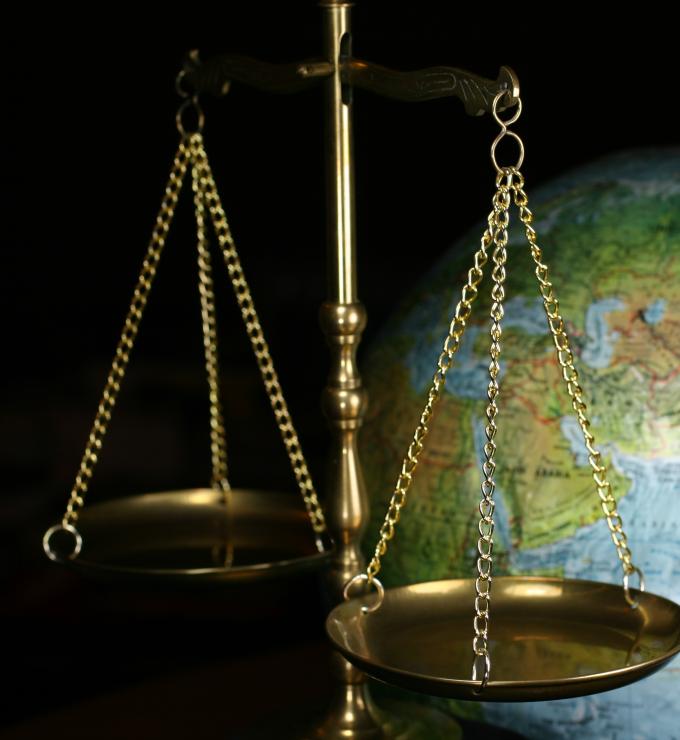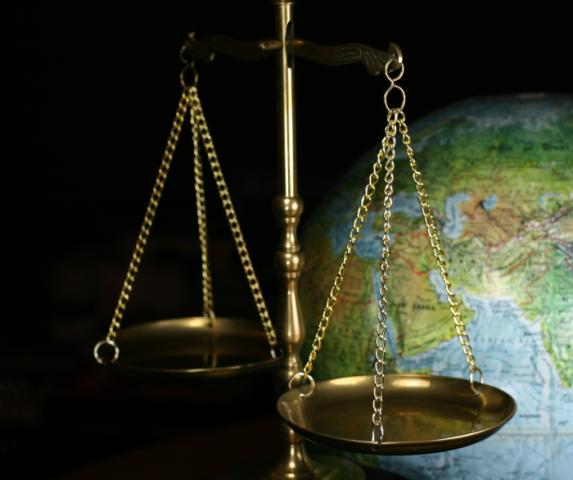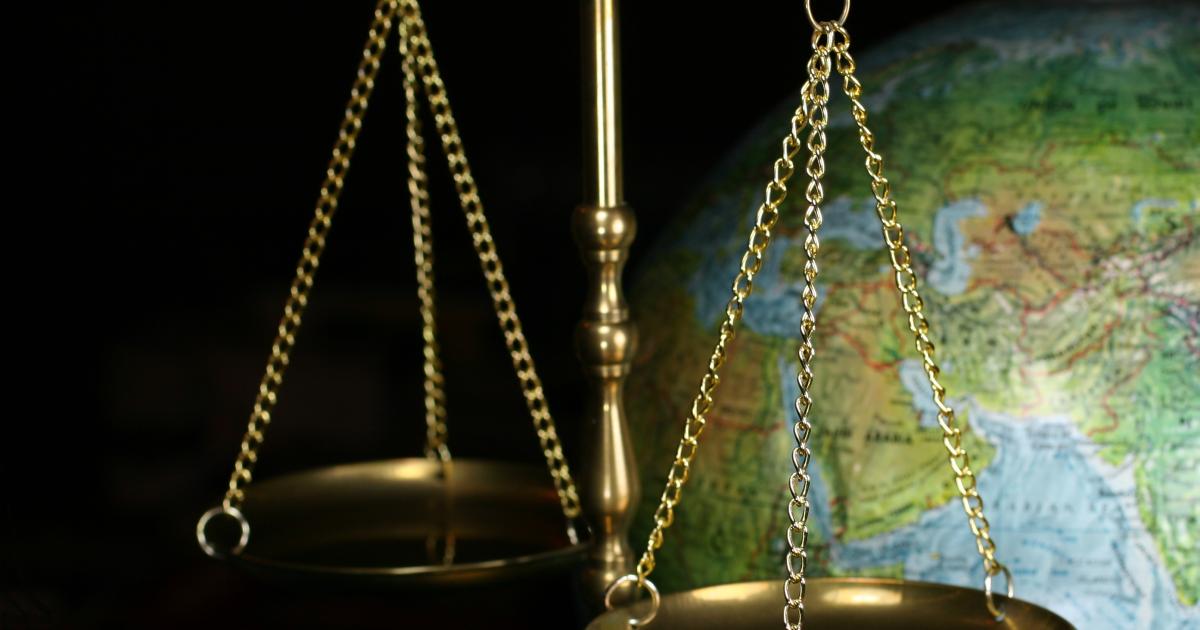- International Affairs
- Key Countries / Regions
- Middle East
- US Foreign Policy
- Politics, Institutions, and Public Opinion
- Revitalizing American Institutions
An American foreign policy that includes the promotion of human rights as one of its missions can draw on a tradition rooted in the Declaration of Independence. The assertion of universal equality and the designation of unalienable rights, "life, liberty and the pursuit of happiness," have shaped American political culture. That the reality of American life has never fully realized these ideals and at times failed them egregiously, notably in the institution of slavery, does not negate the validity of the ideals themselves.
For the country's first century and a half, it was not a major actor in international affairs, and there was therefore little room for a foreign policy involving rights promotion abroad. One exception that deserves mentioning is the role that the U.S. Navy played in suppressing the Atlantic slave trade decades before the domestic abolition of slavery. Yet it was only in the wake of the First World War that the U.S. gained the foreign policy clout to begin to project its ideals globally, notably in Wilsonian democracy promotion and later in the terms of the Atlantic Alliance during the Second World War. Those agendas, reflecting political visions of presidents Wilson and Roosevelt, eventually took more formal shape in the Universal Declaration of Human Rights in 1948. The International Covenant on Civil and Political Rights followed, coming into force in 1976. Still, it was not until the Carter administration that human rights became a key watchword of American foreign policy, amplified during the Reagan presidency with its vocal condemnation of rights violations in the Soviet Union.
A foreign policy around rights advocacy necessarily generates certain structural challenges. First, in a world of competition and conflict, where alliances are necessary, the allies available do not necessarily share all our values. The obvious example is America's wartime alliance with Stalinist Russia in order to defeat Nazi Germany. One could also point to the tolerance for dictatorships during the Cold War, as part of the global struggle against Communism: Salazar's Portugal, the Greek junta, martial law on Taiwan under Chiang Kai-shek. In such cases, the battle for freedom seemed to require collaboration with unfree regimes in order to defeat a greater threat.
Secondly, inconsistencies appear when norms are used to criticize some countries but not others. At stake is the inevitable tension between ideals and realpolitik, between abstract aspirations and the diverse regimes with which a foreign policy interacts. Applying the same metric rigorously everywhere can prove impracticable. The State Department's Trafficking in Persons Report tries to solve this problem by measuring each country in terms of its own progress toward a goal rather than with a single measurement for all. This attention to local circumstances introduces useful suppleness into the practical activity of a foreign policy pursuing rights.
Third, as soon as rights advocacy enters foreign policy, adversaries quickly argue that America only uses the rhetoric of rights as a tool rather than sincerely pursuing rights as a goal. Such an alleged instrumentalization of rights results in a politicization of rights claims, i.e., the suggestion that the accusation of a rights violation is merely a pretext to pursue a political agenda hidden behind the rights discourse. The Soviet Union responded in this way to the Reagan administration's persistent protesting of rights violations: for Moscow, American interest in human rights was exclusively an expression of an American imperialism, and Communist propaganda did not have a difficult time in pointing to contradictions between our foreign policy and domestic rights failures. A similar anti-American rhetoric has become commonplace in the context of academic postmodernism, which misrepresents the very notion of universal human rights as an effort to project American power globally and suppress local cultural differences.
These three problems around human rights--alliances, inconsistencies, and politicization--are present in abundance when discussing the challenges of US foreign policy in the Middle East. America has played a central role in the security architecture of the region since the Second World War (in the wake of the withdrawal of colonial powers England and France), and there was good reason to do so: the strategic significance of the Middle East in the competition with the Soviet Union and the importance of oil. The Soviet Union is gone now, but great power competition continues, and despite the global interest in transitioning away from non-renewable energy sources, Middle East oil remains vital to the world economy. If the US were to withdraw from the Middle East, Russia and/or China would rush in to fill the vacuum; under either of their hegemonies, rights would suffer. The mandate to promote human rights is therefore a further justification for continued US engagement in the Middle East. The question is how to do so most effectively, especially in an era of constrained resources.
To operate in the region, the US needs allies and, as discussed, allies do not always meet our ideals in terms of rights. An effective foreign policy should urge such allies to move toward greater freedom, and it should intervene in specific cases of gross abuse, but without destabilizing the regime. It is important to avoid repeating the mistakes of the Carter administration with Iran. No one can argue that the fall of the Shah was due exclusively to Carter's human rights policies, but they did contribute to the administration's inability to save our ally or to steer the transition. In the end, the US was viewed as having abandoned a longtime friend--that alone was a blow to American prestige--while a new regime came to power in Tehran that has been a catastrophe for human rights domestically and viciously anti-American for more than four decades. That is the outcome the US must avoid, for example, with regard to Egypt, also a long-standing partner burdened with extensive human rights violations. The challenge for US foreign policy is to maintain the alliance and regime stability while also pushing for human rights progress.
The problem of inconsistency is particularly salient in two cases involving assassinations of journalists, Jamal Khashoggi, a prominent critic of Saudi leadership, and Ruhollah Zam, a vocal opponent of Iran. Both had been in exile, Khashoggi in the US, writing as a columnist for the Washington Post, and Zam in Paris. Khashoggi was murdered on Oct. 2, 2018 in the Saudi consulate in Istanbul; Zam was lured to travel to Iraq where he was kidnapped and brought to Iran for execution on Dec. 12, 2020. Both killings elicited international outcries from political leaders and human rights organizations alike. President Trump and Secretary of State Pompeo were forceful in their criticisms of both executions: no inconsistency there.
Yet an inconsistency has become apparent in the Biden administration's treatment of the Khashoggi and Zam cases. Both cases involved brutal killings of journalists, wrong in their own right, but also wrong as assaults on the freedom of the press in general. Both cases deserve firm condemnation. However, while the Zam execution has quickly disappeared from the headlines, the Khashoggi murder has turned into a pivotal topic in U.S.-Saudi relations. It could seem that the administration values journalists in one country more than in the other. Are human rights less important in Iran than in Saudi Arabia? What drives this distinction?
To explain the lack of concern for the Zam case, it is fair to say that the Biden administration has as a key foreign policy goal a reconciliation with Iran via a return to the Joint Comprehensive Plan of Action (JCPOA), the "Iran Deal." It has made clear that it does not want to raise extraneous issues, such as Iran's ballistic missile systems, and it is therefore even less likely to call out Iranian human rights violations. Making an issue now out of the Zam execution --or the myriad other human rights abuses that make up everyday life in Iran--would only get in the way of a different priority, the nuclear file. This is, therefore, a clear case of a subordination of rights to another goal, even though the Biden administration promised that it intends to place rights at the center of American foreign policy.
The Khashoggi case can be explained in several ways. It is possible that the President genuinely feels moral outrage over the murder, as he suggested in campaign statements. Alternatively, the claim of the culpability of the Crown Prince, Mohammed bin Salman, may be being used by the administration to gain negotiating room with Saudi Arabia or, to use Secretary Blinken's term, to "recalibrate" the relationship between Washington and Riyadh. A further interpretation, cynical but plausible, posits that the high profile accusations against the Crown Prince are intended only to appease part of the President's party through a symbolic display but with little genuine impact on the deep partnership between the US and the Kingdom. The fact that the Biden administration has been exploring the establishment of a new base on the Saudi coast and that, initially at least, the Crown Prince has not himself faced genuine sanctions points to this last version.
The difference between the prominence of the Khashoggi killing for the administration and the invisibility of Zam demonstrates the problem of inconsistency in the pursuit of human rights as well as their politicization. Pursuing the perpetrators of the Zam killing would work against the administration's primary political goal. Hence the silence and hence, also, the refusal to blame the murder of Lebanese dissident Lokman Slim on Hezbollah, the proxy of the same Iran that the administration is trying to court: politicization overrides justice.
Meanwhile the real pursuit of human rights may take place more effectively at levels below statements by principals or newspaper headlines. An important way the US can pursue rights in its foreign policy is the less visible but persistent work by diplomats abroad, identifying rights violations and working to correct them one by one: to get a political prisoner released, to attend trials as observers, to provide support to social movements dedicated to women's rights, the protection of minorities, religious freedom or other similar topics. Getting individual prisoners out of torture chambers may contribute more effectively to improved human rights conditions than headline-grabbing statements. It remains to be seen if calling out the Saudi Crown Prince will make US human rights advocacy in Saudi Arabia easier or harder.
Finally, we should not lose sight of the fact that US rights advocacy has over decades elicited the criticism of hypocrisy. Hostile voices ask how Washington dares to criticize other countries, when its rights record at home is flawed. This is a genuine vulnerability that it would be foolish to disregard. Part of the answer involves the response that even our own flaws do not relieve us of the responsibility of speaking out when we see abuses elsewhere. But it is even more important to face the accusations of flaws honestly and to try to correct them. Democracies should concede their inadequacies in order to improve, in contrast to dictatorships that try to hide their problems by silencing speech, especially journalism.
The American case for human rights abroad is strongest when we can lead by example from home. Yet whenever rights are under assault domestically, our advocating for them overseas will ring hollow. The favorite tool of regimes afraid of criticism is the suppression of the press: hence the executions of journalists, but also the shutdowns of the internet, whether in Iran or Myanmar, not to mention China's Great Firewall. Yet our ability to criticize those restrictions on press freedom elsewhere will weaken, if the current domestic efforts to limit speech on the internet succeed: be it through tagging on social media, banning certain topics denounced as "disinformation," discrimination against unwanted opinions, blocking individuals' accounts or Congress' encouraging service providers to exclude conservative voices. Freedom of the press, like other human rights, is under assault around the world. America will not be able to defend press freedom credibly in the Middle East or anywhere else, unless we preserve it at home.







